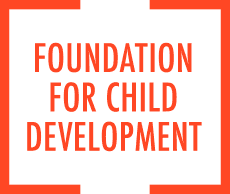All America's Diversity of Children Resources (cont'd)
- Multilingual Children: Beyond Myths and Toward Best Practices
This Social Policy Report from the Society for Research in Child Development (SRCD)*, examines how to best support the development and learning of children who are multilingual, and offers recommendations for policy and practice.
February 12, 2014 • Read More2013 Child Well-Being Index (CWI)Since 2004, the CWI has been released annually.
December 12, 2013 • Read MorePreK-3rd’s Lasting Architecture: Successfully Serving Linguistically and Culturally Diverse Students in Union City, New JerseyUnion City Public Schools has overcome the crippling effects of poverty and prejudice to close the achievement gap between its low-income Hispanic students and their wealthier peers across New Jersey.
September 12, 2013 • Read MoreDiverse Children: Race, Ethnicity, and Immigration in America’s New Non-Majority GenerationThere are significant disparities in the education, economic well-being, and health of children in the U.S. based on their race-ethnicity and whether or not their parents are immigrants, according to Diverse Children: Race, Ethnicity, and Immigration in America’s New Non-Majority Generation, the first report ever to draw these comparisons.
August 26, 2013 • Read MoreDo Middle-Class Families Benefit from High-Quality PreK?A new policy brief from the Center for Research on Children in the U.S. (CROCUS) by William T. Gormley, Jr., Karin Kitchens, and Shirley Adelstein at Georgetown University explores the effects of state-funded pre-K programs in Tulsa, Oklahoma, on different population groups to understand if middle-class families benefit from the program.
July 17, 2013 • Read MoreA Stronger Safety Net for America’s ChildrenFederal safety net initiatives lift millions of children out of poverty and mitigate the scope and impact of problems ranging from illness to hunger.
June 27, 2013 • Read More2012 Child Well-Being Index (CWI)The 2012 Annual Release of the CWI reports that American families’ economic decline preceded the recession, jeopardizing both middle class and low income children.
December 13, 2012 • Read MorePeer Violence Among Teenagers: Trends in Violence and Threats of Violence in Schools: 1991-2010A special Child Well-Being Index (CWI) report from Duke University tracks trends over time in percentages and numbers of middle and high school students exposed to four forms of peer-to-peer adolescent violence in schools, specifically: threat without injury; threat with a weapon without injury; intentional injury without a weapon; and injury with a weapon.
August 1, 2012 • Read MoreSign up for The Learning Curve
Stay up-to-date with the latest resources and insights coming from the Foundation for Child Development and its colleagues. We do not share or sell email addresses or any other information collected to outside parties. We will use your email address only to send you relevant content, and you can unsubscribe at any time.
